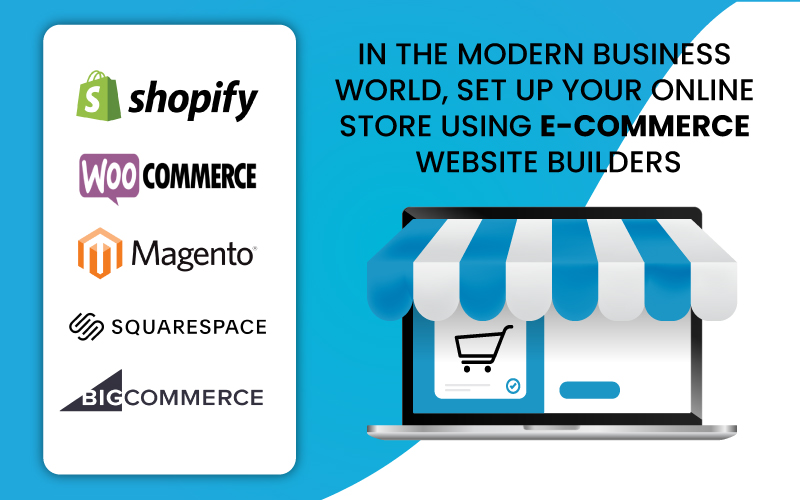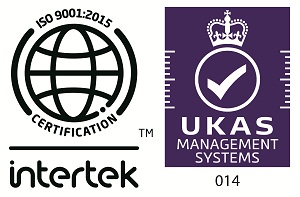In the modern business world, e-commerce is the need of customers, time, businesses, and nations.
Since its inception, e-commerce has changed the face of retail all across the world. And as the pandemic has pushed on, consumer’s need for an online store has risen to an unprecedented height.
There are many reasons why we are watching the growth of a new e-commerce website on the internet almost daily. A wider global reach and decreased business costs are just a few reasons why most retailers gravitate towards an online store.
So, how can we start our very own Online Business?
The first thing you require is a Website. To develop a website, you will need an e-commerce platform, a software that will provide you all the tools to start and operate an online business.
Now, there are countless e-commerce platforms & website builders available to get used for an e-commerce website development. But what will be best for you?
Let’s glance over the Pros and Cons of FIVE e-commerce platforms & website builders and to which business they are best suited-
1. Shopify
Shopify is a fully hosted platform through which you can quickly develop your store using pre-built templates and a step-by-step process for adding products and other key e-commerce features.
Pros:
- Beginner-friendly, super-easy setup
- Clean and Simple GUI
- Fast load time
- Sell products on multiple channels (like Facebook, Amazon, Instagram, Pinterest, etc.)
- Abandoned cart recovery for visitors who didn’t complete the checkout process
- 1-click upsell, i.e., once your customer completes checkout- an offer window will appear with a better, more expensive product. All customer has to do is click one button to add it to their order- that’s it!
Cons:
- Tough to customize Shopify Themes if you are not familiar with “Liquid”- Shopify’s self-developed PHP language
- The checkout process can’t be customized.
- Weak in terms of SEO/ranking capabilities
- A lot of Shopify add-on apps come at a hefty price.
Best Suited For:
- Beginners/Owners of Small Businesses.
2. BigCommerce
BigCommerce gets widely appraised as one of the most flexible and scalable options among all e-commerce website development platforms. It offers the same features and functionalities of other platforms but allows far more scalability as your online business grows.
Pros:
- Highly scalable, i.e., as your online store grows, BigCommerce grows with you
- Sell products on multiple channels (like Facebook, Amazon, Instagram, Pinterest, etc.)
- Strong SEO features/capabilities
- Wide range of in-built features
Cons:
- Not best for beginners due to its reasonably technical nature
- Inconsistent loading speed
- No 1-click upsells
- No built-in feature available to make your website Multi-lingual (can only do via code)
Best Suited For:
- Small businesses that are looking to scale up.
3. WooCommerce
WooCommerce is a FREE plug-in for WordPress websites that provides e-commerce features and functionalities.
The open-source nature of WooCommerce makes it highly customizable and overshadows the money you would have to shell out for web hosting, security certificates (SSL), payment options, etc.
Pros:
- Free
- Highly-customizable
- Best platform for SEO
- Optimal Security
Cons:
- Your site has to use WordPress
- Too many plug-ins hamper performance (take up a lot of memory)
- Hosting can be expensive.
- No customer service support
Best Suited For:
- Users who own a WordPress website and want a free, easy-to-install plug-in that lets their site have shopping cart functionalities.
4. Magento
As the best platform for large-scale businesses, Magento helps develop a feature-rich, highly customizable e-commerce website. However, it should be avoided by small businesses and those with little knowledge about web development.
Pros:
- Robust and Feature-rich
- Strong SEO and marketing features
- 1-click upsells
- Highly customizable and scalable
Cons:
- Highly Expensive Plans & Themes
- Not for beginners, i.e., you need to have professional web development experience to build and manage a site using Magento
Best Suited For:
- Medium to Large scale retail businesses having the budget to create a highly customizable and robust e-commerce website.
5. Squarespace
The primary attraction of Squarespace is its simplicity. Even a beginner in web development can quickly figure out how to create a great looking website using the Squarespace interface.
However, this “too-simple” approach might not suit some businesses and their owners.
Pros:
- Super easy to set up and use
- An excellent choice for basic stores
- Wide range of stunning templates and themes
Cons:
- Limited e-commerce integrations
- Limited payment gateways/options as compared to other platforms
Best Suited For:
- Businesses, looking for a dummy-friendly website builder that offers plenty of stylish themes and robust content-building features.
In conclusion,there are many options for e-commerce website development, making the right one extremely crucial.
The right choice will grow your business at lightning speed, while a wrong choice would lead to a dead end.
Still, confused? Then no need to fret, as 6DegreesIT helps businesses like yours in creating an e-commerce store.
Our professional developers can guide you through the journey and make your work far more straightforward.
Contact our team today!




